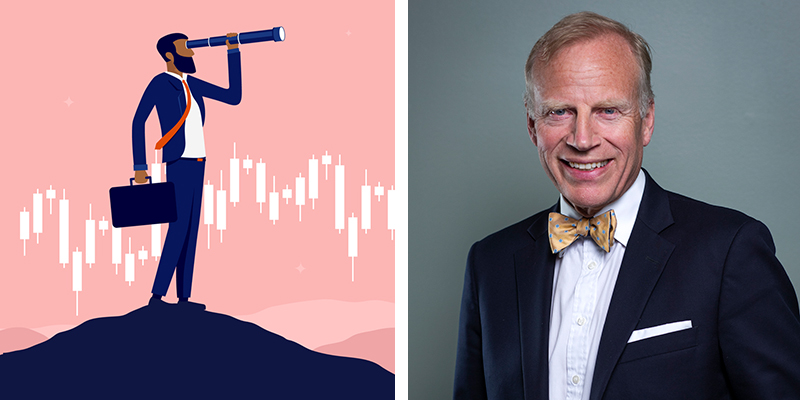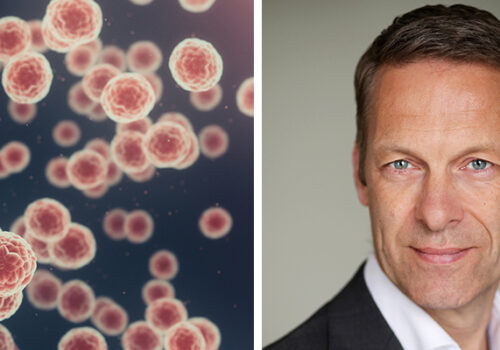Personalized medicine, weight loss remedies and new treatments for widespread ailments are among the rising areas of high interest in the biotechnology and therapeutic arenas, according to executive chairman of Flerie Invest, Thomas Eldered.
Thomas Eldered talked with Nordic Life Science about the Nordic and global life science financial landscapes and Flerie’s role in funding new ventures.
What do you view as the hot areas in the technologies/therapeutic fields?
“We are seeing some amazing and promising results in personalized medicine, and we expect that to be a very hot area going forward. Treatments for diabetes, both type 1 and 2, are also in focus and obviously the superhot obesity space where we believe there is room for more novel therapies with new mechanisms of action.”
We shouldn’t forget huge areas like heart failure, where there is still no good treatment. Innovative new products (in this area) will attract a lot of interest.”
“Oncology products with significantly better treatment outcomes than the current gold standard are also of high interest. We shouldn’t forget huge areas like heart failure, where there is still no good treatment. Innovative new products (in this area) will attract a lot of interest.”
Who do you think will receive venture capital funds and other financing and who will not?
“In general, innovative products in areas of high medical need. The risk-averse conditions will remain, meaning that projects that manage to combine risk reduction with pioneering innovation will be particularly attractive for venture capital funding.”
Marginal improvements over current treatments, or just another oncology product, will struggle to find support.”
“I believe the fundraising market is opening a bit and we have seen some significant fundraising efforts recently, also in pre-clinical projects, but again this involves highly innovative products. Marginal improvements over current treatments, or just another oncology product, will struggle to find support.”
What are you and your colleagues at Flerie looking for when deciding to invest in a company?
“We are looking for pioneering, innovative projects, ideally targeting areas where there is no treatment today. A potential new class of drugs could be attractive. As an active shareholder, it is important for us that we contribute something more than money. People are important, and they are often crucial, but science and technology are even more important, and more fundamental to the company and to our decision to invest.”
“We only invest in areas we and our network of advisors know well. We don’t invest in digital health, generics, biosimilars, pure medtech and other areas where we don’t have experience.”
What are some of the general trends for the industry in times of recession?
“Firstly, I’m not sure we should talk about recession. In the U.S. last year, we were all hoping for a soft landing at best, but the economy has remained remarkably strong. That is not to say there aren’t things to worry about. In times of inflation, cost increases and a more uncertain future limit the willingness to take risks and invest in long-term biotech development.”
“However, interest rates have now started to come down. This will have an almost automatic positive impact on the valuation of development projects. Global politics and tensions also impact the pharmaceutical industry, and we have all become aware of the risks associated with global supply chains. The trend of bringing supplies closer to the market you supply will continue and this is particularly obvious in the U.S. The Inflation Reduction Act will have an impact on interest for small molecule projects among other things.”
How are global conflicts and war affecting the abilities of Nordic life science companies to develop and find financing?
“With the war in Ukraine now going into the third year, we all feel a bit unsecure about the future. This is not helpful for investments where you need a long investment horizon. This is more important in the Nordics than the rest of Europe, but for Nordic life science companies to continue to develop I think the impact is minimal. Impact from the pandemic was tremendously more important, but that has now largely been overcome.”
What is your advice to Nordic life science companies?
“In the Nordics it has been particularly difficult for smaller publicly listed companies to raise funds. Even if the development projects are great, it is very difficult to attract interest from current and new retail investors and non-life science specialists. It is easier said than done, but if you are publicly listed you should try to get at least three experienced investors with a track record and understanding of life science development. If you are considering an IPO, don’t proceed unless you have these investors on board.”
Times are indeed challenging, even for good projects, and you may have to downsize and almost hibernate, stop all development activities and just focus on seeking partners or new investors.”
“We have already seen some highly successful biotech IPOs in the U.S. this year, together with large financing of even pre-clinical projects. In the CDMO space, Novo Holdings’ acquisition of Catalent took us by surprise and it will be interesting to see what comes of that.”
Eventually conditions will improve, and this may be just around the corner.”
“Times are indeed challenging, even for good projects, and you may have to downsize and almost hibernate, stop all development activities and just focus on seeking partners or new investors. Startup will take longer once you get the go-ahead, but at least the company will survive. There will always be a need for significantly improved treatments and there are still many areas of high unmet need. Eventually conditions will improve, and this may be just around the corner.”
This interview was originally published in NLS magazine No 01 2024, out February 2024








